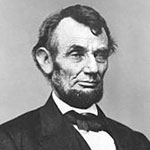In recent years, business leaders have become more attuned to a problem known as “short-termism,” or the tendency to focus on short-term profits at the expense of long-term innovation. Executive management teams are driven by shareholders to reduce costs in an effort to raise quarterly profits. But when companies refrain from investing in things like employee training and research and development, they typically become less innovative and less profitable in the long-term.
The problem of short-termism is not isolated to big business. In their obsessive focus on an upcoming election, politicians neglect the most difficult, time-consuming problems. They focus instead on cheap legislative accomplishments designed to enthuse their core supporters.
As individuals, we often embrace the pleasure of the moment at the expense of long-term physical and emotional health. Our marriages and family relationships suffer as we immerse ourselves in online gaming and social media.
Of course, some of us have the opposite problem. For the sake of future financial security, we become workaholics, neglecting our families who need us to be fully present in their lives now.
So how can we become more adept at pursuing two goals at the same time, responding to present needs while preparing for the future? From the perspective of character development, the answer is practical wisdom.
Practical wisdom is what allowed Abraham Lincoln to preserve the union and abolish slavery. His ability to hold these two disparate goals in his mind at the same time explains his openness to legislative compromise and gradual emancipation. Accomplishing both goals would require unimpassioned judgment and carefully planned legislative and military strategies.
According to Aristotle, practical wisdom is the ability to deliberate well about human action. He contrasts theoretical wisdom with practical wisdom, which takes into account the messiness and complexity of real life. Where theoretical wisdom can provide clear, rational guidance for an ideal world, practical wisdom recommends middle-ground solutions that accommodate more than one point of view. Seasoned mentors can help us find otherwise hidden paths through the thorny problems of real life.
Practical wisdom is developed as we gain experience working toward more than one goal at the same time. For Aristotle, the goals of practical wisdom are shaped by the other moral virtues, such as courage, self-control, fairness, and generosity. If these virtues define the ends of human behavior, practical wisdom determines the means toward those ends. The real challenge comes when the demands of different virtues conflict with each other. For example, the virtue of honesty regularly conflicts with kindness, such as when expressing our honest opinion about another person would be unnecessarily hurtful.
We could say that practical wisdom is the executive virtue that harmonizes conflicting goals and finds a reasonable path to solve intractable problems. In most cases, balance and moderation are its guiding principles: considering the needs of the present and the future, caring for both the body and the soul, and strengthening both our relationships and our personal well-being. The hallmark of practical wisdom is confidence in one’s rationality, in one’s ability to resolve moral dilemmas and formulate creative solutions.
As a modern society, we probably don’t value practical wisdom as much as previous generations. But it may be the cure for short-termism in business and in life.
There are at least three major obstacles to cultivating this type of wisdom. The first is that compromise and moderation are unpopular. In politics, they connote weakness and a lack of conviction. Voters are typically more attracted to a candidate who refuses to compromise her firm and unyielding principles. In business, an executive who turns down the financial security of a promotion to spend more time with his family will likely be labeled as dimwitted. But those who possess practical wisdom know that life is too complicated for one-dimensional measures of success. They know there is more than one goal worth pursuing. Wise politicians know there is more truth out there than they currently comprehend. Sometimes practical wisdom dictates a radical and revolutionary fight for truths we hold dear, but most of the time it places us on a middle ground.
The second challenge is that our emotions tend to inhibit our rationality. Emotions are part of our humanity. Without them, virtues such as kindness, generosity, and compassion would remain undeveloped. But practically wise people know that the consequences of unbalanced emotion include reckless behavior and blind spots in our thinking.
The third obstacle to practical wisdom is that our knowledge and perception are limited. Reconciling the demands of the present with the needs of the future requires a level of foresight that we often lack. Because we all have limited life experience, it’s essential to engage in dialogue with those who have different perspectives.
The widespread problem of shortsightedness calls for a revival of practical wisdom in both public and private life. With a willingness to compromise, better emotional balance, and greater openness to others’ insights, such a revival can become a reality.



